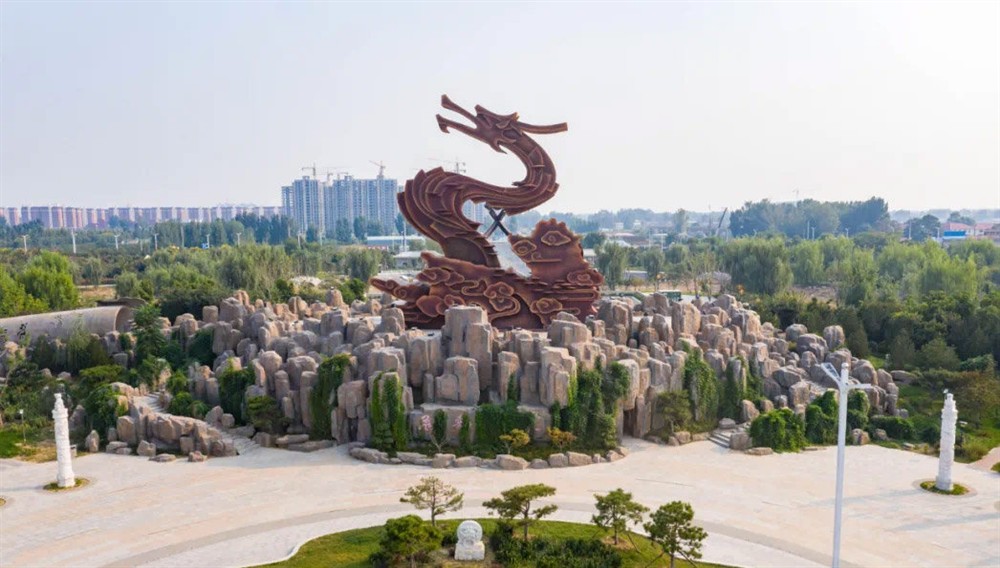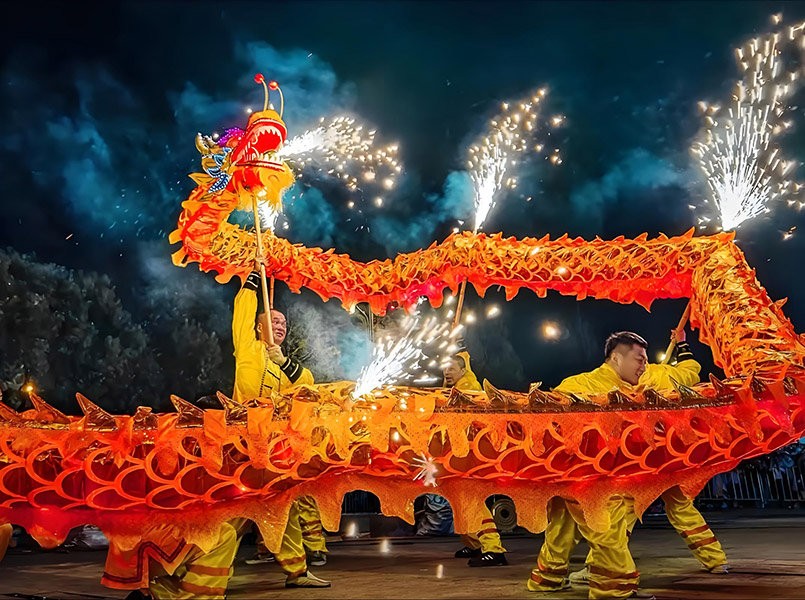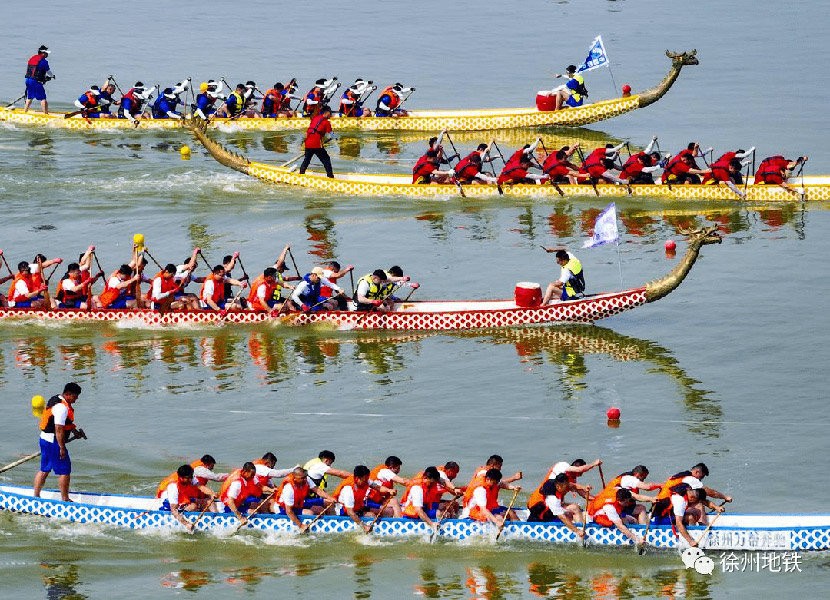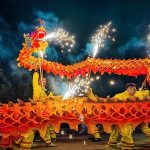China’s rich history and mythology are deeply intertwined with the mythical and powerful dragon. Symbolizing strength, prosperity, and good fortune, the dragon is much more than a creature in Chinese folklore. It’s a revered cultural icon, representing the spirit of the Chinese people across millennia. So, let’s dive into the magical world of dragons, from their ancient origins to the lively celebrations and cultural festivities that still thrive today!

The Origin of Dragon Culture
Dragons have been a part of Chinese culture for over 5,000 years, with their origins dating back to the ancient times of the Yellow River Civilization. Initially, dragons were believed to be water deities that governed the rivers, lakes, and seas, controlling the weather and ensuring abundant crops. These early dragons were often depicted as serpentine creatures, revered for their divine ability to bring rain and good harvests.
As the civilization evolved, so did the portrayal of dragons. By the time of the Shang Dynasty (1600–1046 BCE), dragons were seen as symbols of imperial authority, associated with power, royalty, and cosmic harmony. Emperors during the Tang and Song dynasties even adopted the dragon as their symbol, claiming to be descendants of the mythical creatures. The dragon throne was literally where the emperor sat—signifying their divine right to rule.
Dragon Legends and Myths
The allure of dragons in Chinese culture is largely fueled by the fascinating myths and legends that have emerged over the centuries. One popular tale is that of the Dragon King, a powerful deity who reigns over the seas. According to legend, the Dragon King controls the weather and the oceans, sometimes unleashing storms, and other times bestowing bountiful harvests with gentle rain.
Another famous legend is of Fu Xi, one of the ancient Three Sovereigns and Five Emperors. Fu Xi, who is often depicted with a serpent-like lower body, is said to have discovered the secret of the I Ching, the ancient Chinese system of divination, inspired by the divine symbols of the dragon. This connection between dragons and wisdom has been celebrated for generations, showcasing the importance of dragons in Chinese philosophy and culture.
Folk Activities: Celebrating the Dragon Spirit
The dragon’s cultural influence is evident in many of China’s beloved festivals and folk traditions. The Lantern Festival, held during the first full moon of the lunar year, features one of the most spectacular dragon-related activities: dragon dancing. This colorful and energetic performance involves teams of performers holding up a long, vibrant dragon puppet, which they sway and dance through the streets to bring good luck and drive away evil spirits. The mesmerizing movements of the dragon symbolize harmony, strength, and community spirit.

Another key event is the Dragon Boat Festival, a centuries-old tradition that takes place every year on the 5th day of the 5th lunar month. During this festival, teams race in beautifully crafted boats, shaped like dragons, down rivers in a competitive race. The festival is said to commemorate the patriotic poet Qu Yuan, who drowned himself in protest against corruption. Today, the race has evolved into a celebration of the dragon’s power and majesty, with families gathering to enjoy the exhilarating races and feast on zongzi (sticky rice wrapped in bamboo leaves).

One more significant event is the Dragon Head-raising Day (also called “Longtaitou”), which occurs in the spring. Traditionally, this is the day to welcome the dragon’s return to the skies after the long winter. Villagers often celebrate with dragon dances, prayers, and various rituals, hoping for a good harvest year ahead.
The Puyang Chinese Dragon Culture Festival
For those who want to experience the grandeur of dragon culture in a truly immersive way, the Puyang Chinese Dragon Culture Festival is the ultimate celebration. Held annually in Puyang, Henan province, this festival is a vivid expression of the region’s deep connection with dragon folklore. The festival showcases large-scale dragon parades, cultural performances, and even dragon-themed art exhibitions. People from all over China gather to admire the intricate designs of dragon sculptures, participate in dragon dances, and enjoy the electrifying atmosphere of this cultural extravaganza.
The Puyang festival is not just about honoring the mythological creature—it’s about celebrating the rich cultural heritage of Chinese folklore. It’s a place where ancient traditions meet modern creativity, where every corner of the festival bursts with the liveliness and vibrancy of China’s dragon culture.
Exploring More Dragon-Related Destinations
If you’re enchanted by the charm of dragons and wish to explore more of China’s rich culture, here are a few must-see places:
Lijiang
A city known for its ancient town, surrounded by myths and legends. Here, you can visit Dragon Spring, a scenic area believed to be the home of the Dragon King.
Xi’an
Known for its Terracotta Warriors and the legendary Dragon Temple, Xi’an is a place where the past and the mythical collide.
Hangzhou
The scenic beauty of West Lake is said to be enhanced by dragon legends. Many traditional tales tell of dragons that lived in the waters of the lake, bringing beauty and prosperity to the region.
Wrapping Up the Magic of the Dragon
From ancient myths to modern-day celebrations, the dragon remains one of the most influential symbols in Chinese culture. Whether it’s through vibrant festivals like the Dragon Boat Festival, historical legends like the Dragon King, or artistic expressions seen in places like Puyang, the dragon continues to inspire awe and admiration.
Ready to immerse yourself in the magnificent world of dragon culture? It’s time to explore these festivals and destinations, and embrace the magic and mystery that the dragon brings to China’s cultural landscape!

